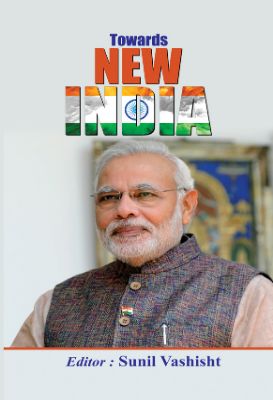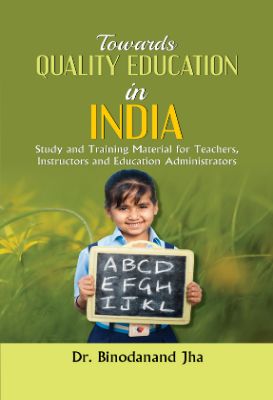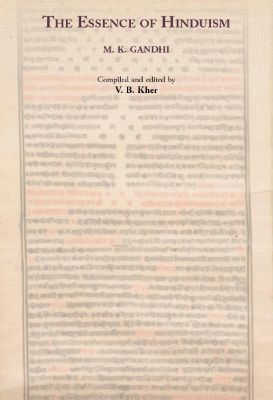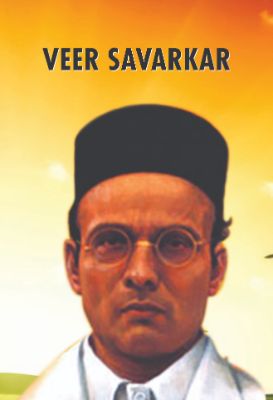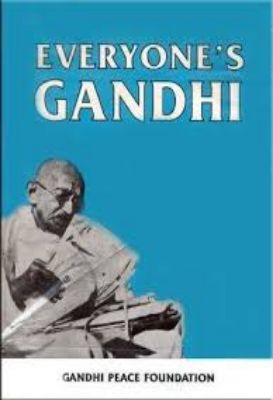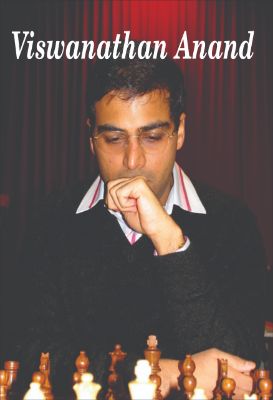English Books
Showing 961–990 of 1016 results
Tips for Happiness in the Shadow of Cancer by Dr. Meenu Walia
One never forgets the day, the exact moment when he/she was diagnosed with cancer. For almost everybody it is a life-changing experience. This book is intended to serve as a guide to bounce back in life and get up on your feet as it was the way earlier. I came across many people, have seen them crying on
the day of diagnosis and so have seen them with tears of joy
after completing the treatment. This is a depiction of the rollercoaster of emotions which I have witnessed and felt connected to the patients. We all learn from our mistakes but wise are those who learn from other’s mistakes. This book is an effort to encompass the misconceptions, fears, social stigma, and course of treatment and ultimately how to deal with the situations to resurface as a winner.
Together in Struggle by V. Suryanarayan
Jawaharlal Nehru and Sukarno were two of the greatest charismatic leaders of the twentieth century. They have left their indelible imprint on all aspects of contemporary India and Indonesia. This book graphically describes how the two countries became close allies in the momentous years of Indonesian Revolution (1945-1949). While the Indonesian nationalist triumvirate—Sukarno, Mohammad Hatta and Satan Sjahrir—have frequently acknowledged India’s seminal role in the cause of Indonesian independence, there is marked tendency among the Western scholars to downgrade India’s significant contribution. This path breaking book takes a balanced approach. It will be of interest to all those who are committed in promoting India’s relations with Indonesia. More so, when Indian leaders are trying to convert the Look East Policy into Act East Policy.
Towards Global Togetherness by Dr. L.M. Singhvi
Global Togetherness is an idea the time of which has come. It is an idea which has been evolving for many millennia.
The idea permeated the Vedic and the Sramana vision of life in India. ‘Vasudhaiva Kutumbakam’ was the credo of the liberal, large-hearted, enlightened, emancipated, and civilizational mindset of India in its radiant magnanimity. The seers of India envisioned in their concept of global togetherness the oneness of the human family, the foundation of which was the sharing and caring philosophy of reciprocity, interdependence and affirmative tolerance based on an understanding and acceptance of diversities.
Towards New India by Sunil Vashisht
Ever since receiving a historic mandate in May 2014, the NDA Government under the dynamic leadership of Prime Minister Shri Narendra Modi has made a lot of structural changes in governance and is scripting India’s economic turn around and is surely making India a formidable superpower of the world.
‘New India 2022’ is a vision and dream of Shri Modi for transforming India into a Clean India, Poverty Free India, Corruption Free India, Terrorism Free India, Communalism Free India, Casteism Free India
by 2022.
This book focuses on several important aspects having direct or indirect impact on New India movement like economy, banking, social issues, women empowerment, national security etc. wherein subject experts have written on important issues on how to take India forward.
Collection of well researched articles which will pave the path of NEW INDIA.
Towards Quality Education in India by Dr. Binodanand Jha
Gone are the days when teachers used to be in the centre of education but now the focus is on the students. Now, teachers cannot carry out punishments and act with extreme strictness. Today, there is no co-relation between age and knowledge. With the explosion of facts and information nobody can claim that by virtue of age or by the mere fact that they were born earlier, they know more. Now, the things will move with courtesy and humbleness. The present teacher cannot be student’s father. He should prepare himself to play the role of an elder brother/sister or of a friend who will facilitate and encourage the child. The knowledge acquired in this environment will travel long distance with the student. Teachers will develop shared understanding with which knowledge will be created.
For the holistic development of a child, it is imperative to develop a book which not only deals with the principles and innovations but also throws light on the practical approach of teaching skills. Such a book should emphasise on the importance of learning skills rather than memorising by rote mechanism. If a child is unable to develop learning skills then we would have to reorient our teaching techniques.
A complete book on how to impart quality education & knowledge to students.
Transformation Through ‘Thinking’ Positive by Dr. Ashutosh Karnatak
Positive is one of the basic requisites for living a good and fulfilling life.
With this book, I have tried to touch upon the idea of Thinking Positive and how it may lead to the development of a positive society, positive India and a positive universe as a whole. The book is intended to help employ a positive approach, not only in professional life but in day-to-day life as well. The intention to bring out this book is to disseminate positive thinking among the masses so that they can face the challenges of this competitive world happily and without stress.
The book intends to take the reader to a journey to reinvent self to think in a positive manner in all circumstances.
‘A time has come to develop Generation (P3) i.e. Positive, Proactive & Progressive required for sustainable development of the country.’
—Dr. Ashutosh Karnatak
Unsung Heroes of Jharkhand Movement by Anuj Kumar Sinha
The separate state of Jharkhand was a dream of all. A layout had been made of how it would be.
How did this come about? Who made the sacrifices? Where were the people tortured? How many lost their lives? The reason for this book to be written was to document the sacrifices of these people who created Jharkhand. It is a tribute to keep alive their memory and contribution.
The book deals with stories of these unsung heroes in six sections. The first highlights the tragedy of those killed by the police. Also those who were caught in cross-firing.
The second section comprises stories of revolutionaries who became victims of the mafia and thugs.
The third section throws light on the role played by the non-tribal revolutionaries.
In the fourth section, the stories are dedicated to the role of women in the Jharkhand Movement.
The fifth section discusses about the Role of All Jharkhand Student Union (AJSU).
The sixth section brings forth the plight of those who died due to lack of treatment, of natural causes or in accidents. They, however, played a major role in the Movement. It also mentions those who are living and carrying on the good work.
Up from Slavery (Class Xi) by Booker T Washington
"Up From Slavery" is the classic autobiography of one of the most controversial figures in American history, Booker T. Washington. "Up From Slavery", recounts Washington's rise from a Virginia tobacco farm slave to his long standing tenure as President of the famed Tuskegee Institute of Alabama. Washington's message is one of the advancement of African Americans through economic empowerment for as he put it, "the individual who can do something that the world wants done will, in the end, make his way regardless of his race." His message of self-empowerment has been a dramatic force in the fight for racial equality and shall forever be remembered in the annals of American history.
Veer Savarkar by Kavita Garg
Vinayak Damodar Savarkar was a brave and staunch patriot. He was born on 28th of May, 1883, in a village called Bhagoor near Nasik in Maharashtra. His parents were from a middle-class background. His mother, Radhabai was a religious lady. She was extremely kind and honest. His father, Pt. Damodar Pant was known far and wide for his knowledge.
As a child, Savarkar used to be called ‘Tatya’ by the family members. Mother Radhabai used to call her son ‘Vinayak’ with great affection. Vinayak, the little boy, was brought up with great love and care. Due to the religious environment at home, the child used to get a lot of opportunities to regularly listen to the chapters from the Ramayana and the Gita. This had a deep impact on his life.
Veer Shivaji by Kapil
Veer Shivaji was born on April 16, 1627 in Shivneri Durg. His father was Shahji Bhonsle and his mother was Jija Bai.
During that time in India, there was the rule of Muslim Emperors. Hindu warriors were shedding the blood of their own kith and kin and were engaged in pleasing the Muslim kings. Hindu blood was shed and Muslims ruled over India.
At the time of the birth of Shivaji, his father Shahji Bhonsle went to the south to fight with his opponent, Mughal Knight Darya Khan Rohilla. Therefore he could not reach Shivneri to celebrate the birth of his son. After killing Rohilla he reached Shivneri to see his son. He was very pleased to see such a beautiful son. But he was not able to stay long with his son. He went towards south India at the invitation of the Mughal Emperor Shah Jahan.
Vision of Vibrant India by Bhairon Singh Shekhawat
All of us cherish democracy. Mahatma Gandhi, the father of the Nation had said, "True democracy is what promotes welfare of the people. "The success of democracy is, therefore, to be gauged by the extent of welfare its four estates promote for the people. These estates are the four pillars where upon rests the edifice of democracy. But the biggest and the strongest pillar of strength of democracy is the people's support to the system; this trust, faith and support is generated only by good governance that promotes common man's welfare. I, therefore, regard people's welfare as the fifth pillar of democracy. The four estates of democracy ought to nurture and work together to strengthen this fifth pillar; for if this key fifth pillar is shaken, people's faith in democracy as an effective system to promote their welfare would be undermined. -Extract from the book Given the vast scope of the subjects covered in the collection, it may be easier to focus on a few topics, as they are the ones that Shri Shekhawat has, in one way or the other, homed in on over the years. A glance at the contents page will reveal how close they are to Shri Shekhawat's heart, and how passionate he is in bringing them to our notice. One subject is the malaise of corruption, and its antidote-good governance, whether it is in the administration of government, in the political arena or in a corporate entity. The other is his pioneering Antyodaya programme, which brought the public into governance, and led to a paradigm-shift in the concept of rural development in Rajasthan. And the insights of the two themes illumine and suffuse all that he touches.
Viswanathan Anand by Shailesh
The meteoric star of
the chess world — Viswanathan Anandwas born on December 11, 1969 in Maviladuthurai, a small town in Tamil Nadu. His family is south Indian Tamilian. According to the south Indian tradition, he does not have a surname or a family name. Viswanathan is a patronymic name that is father’s name is attached to the given name. His name is Anand and his father’s name is Viswanathan, thus he is Anand, son of Viswanathan.






